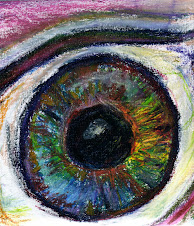Saturday, April 25, 2009
Learning-related Visual Challenges Can Effect Behavior
Students who get very agitated about doing homework, who do not like reading, or who are having serious challenges learning to read may be responding to an undiagnosed visual problem. I see this in the vision therapy context all the time. Children resist doing certain activities by engaging in all types of behaviors that they hope will distract me from continuing to insist on the task. Some children express anger or frustration, even becoming oppositional or somewhat combative. Other children say that they can't do the activity because it is too hard, too tiring, or too confusing. Still others goof around to avoid actually doing the work. These same strategies happen in the classroom and at home over homework. It can be enlightening for the therapist, teacher, or parent to have a calm conversation with the child. Ask whether the activity is difficult. Then ask why. If the child says that the words move on the page, they can't keep their place, the task is just confusing, or it gives them a headache respect the answer. See if the child can make a distinction between doing the assignment and understanding the material. Don't lead the conversation, though. Just give the child the opportunity to explain the basis for the behavior. Then, instead of making the child push through a task that is overly challenging, give an alternate activity that is more achievable. Talk about better ways to tell the adult that a task is too difficult instead of continuing to utilize the bad behavior as an avoidance strategy. Of course, if your child gives you any indication that their resistance to visual tasks is because of how difficult it is for them to cope with the visual information, make an appointment with a developmental optometrist in your area. First, rule out any need for corrective glasses. Then, rule out any eye movement deficits, eye teaming problems, visual processing delays, and visual motor integration deficits or delays. All of these issues can make school very overwhelming to an otherwise bright child. All of them can be addressed using a specific program of vision therapy under the supervision of a developmental optometrist who incorporates vision therapy in their practice setting.
Subscribe to:
Post Comments (Atom)





No comments:
Post a Comment